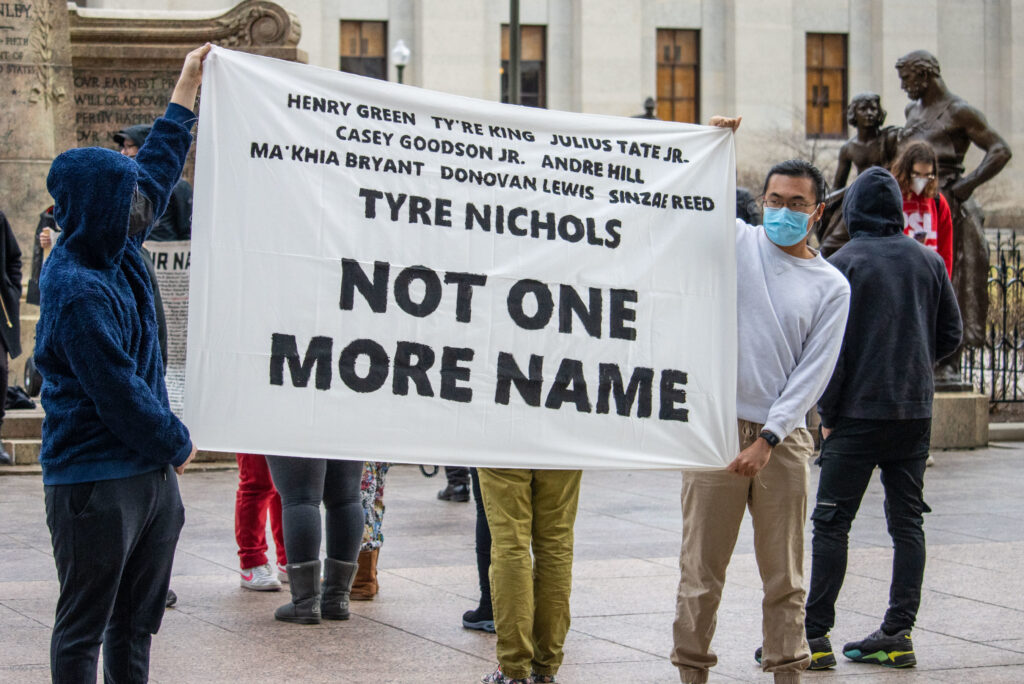Diane’s farewell message
After 52 years at WAMU, Diane Rehm says goodbye.

Protesters calling for police reforms at the Ohio state house on January 29.
Mourners gathered this week in Memphis to remember Tyre Nichols, the 29-year-old Black man whose death at the hands of Memphis police officers reignited discussions about race and law enforcement.
The Reverend Al Sharpton and Vice President Kamala Harris were among those who attended the memorial, and their message was clear: something must change in our nation’s policing.
This week, Diane spoke with Paul Butler, a professor at Georgetown University Law Center and author of the book “Chokehold: Policing Black Men.” He joined her to discuss what effective reform could look like – and how it might be achieved.
This call for change has become all too familiar for advocates of police reform. It is a refrain that has been heard after the deaths of Michael Brown, Eric Garner, Breonna Taylor, and most loudly two years ago after the murder of George Floyd.
While Butler doubts the federal government will enact the kinds of sweeping protections he sees as necessary to addressing issues of racism in the criminal justice system, he does see hope in the changes being made by local leaders and in some police departments across the country.
After 52 years at WAMU, Diane Rehm says goodbye.
Diane takes the mic one last time at WAMU. She talks to Susan Page of USA Today about Trump’s first hundred days – and what they say about the next hundred.
Maryland Congressman Jamie Raskin was first elected to the House in 2016, just as Donald Trump ascended to the presidency for the first time. Since then, few Democrats have worked as…
Can the courts act as a check on the Trump administration’s power? CNN chief Supreme Court analyst Joan Biskupic on how the clash over deportations is testing the judiciary.